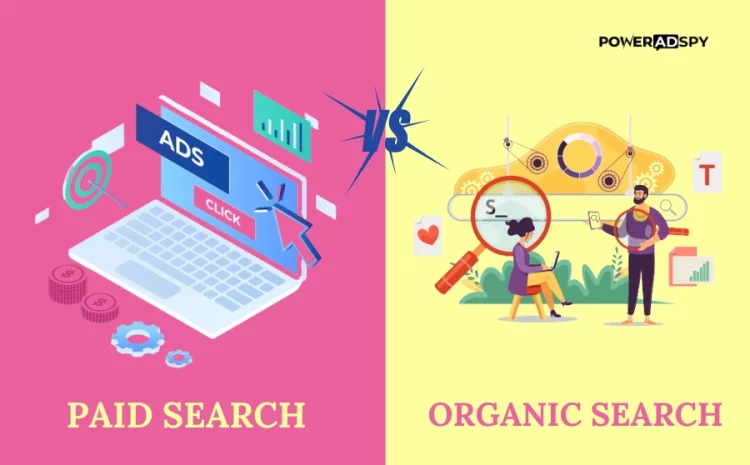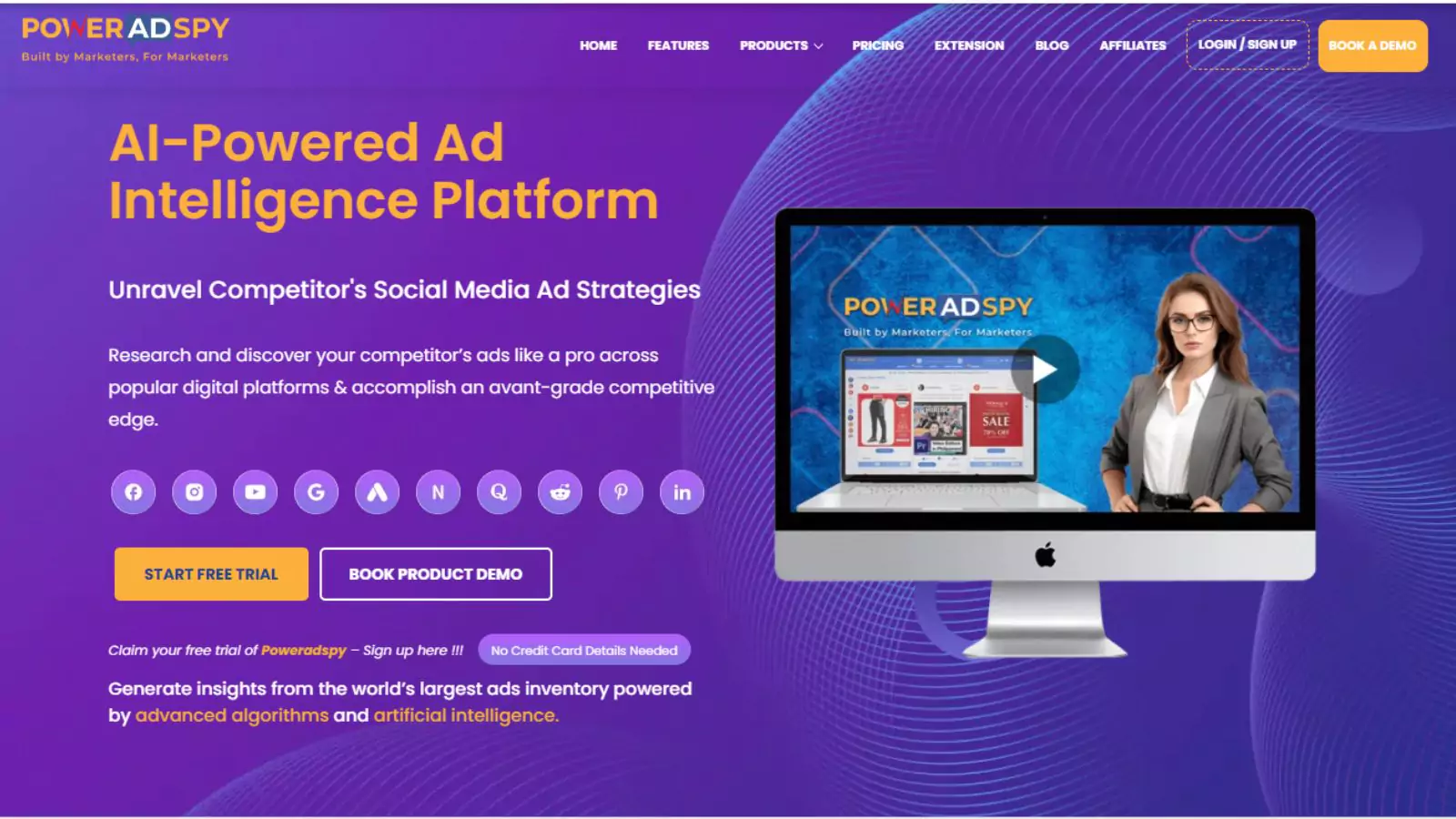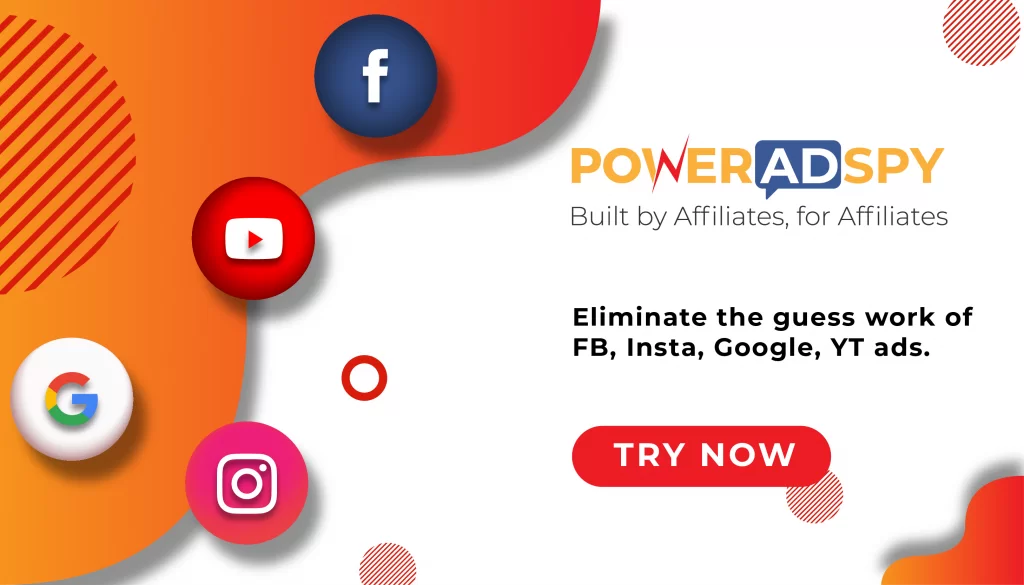Paid Vs Organic Search: The Real Comparison Of Right Now
Are you searching for the best approach to boost your online presence between paid vs organic search? It’s a crucial decision many businesses face in the digital landscape. Paid search involves investing in advertising placements to secure prime positions in search engine results, ensuring immediate visibility to targeted audiences.
Conversely, organic search relies on optimizing content and adhering to search engine algorithms to naturally climb the search rankings—a process that demands patience, consistency, and strategic content creation.
In this analysis of paid and organic search, we will explore specifics, benefits, and obstacles of paid versus organic approach. Let’s unravel the complexities of these two search methodologies, providing insights to assist businesses in making well-informed decisions about resource allocation and maximizing online impact.
Listen To The Podcast Now!
What Is The Difference Between Paid Vs Organic Search?
Organic search enhances your website’s natural visibility on SERPs by optimizing titles, meta descriptions, tags, URLs, keywords, and content such as landing pages and blogs. Organic search results feature below paid ads. Ensuring high rankings entails regular website optimization and adherence to SEO best practices.
In contrast, non-organic SEO involves paid advertisements, targeting users with transactional intent by appearing atop search engine results pages for relevant queries. Paid search campaigns remain active only during the funding allocation.
When Should You Use Organic Search & Paid Search?
Several factors come into play when determining whether to utilize paid vs organic search. Here is a breakdown of when you should use each:
Use organic search marketing when you want:-
Long-term Results:
If you aim for sustainable, long-term visibility and traffic growth, organic search marketing is the way to go. Building organic rankings on the search engine requires dedication and effort. However, it can help your website stay at the top of search results for quite some time.
Sustainable traffic growth:
Organic search traffic tends to be more consistent and sustainable than that traffic from other sources like paid advertising. Optimizing your website can help you attract a steady stream of organic referral traffic to your website without investing anything in advertising.
Building Credibility:
Organic search helps establish your brand as an authority in your industry. High organic rankings signify trustworthiness and reliability to users.
Content Focus:
Organic search rewards high-quality, relevant content. If the focus is on creating valuable content that resonates with your audience, organic search aligns well with your strategy.
Use paid search marketing when you want:
Immediate Results:
When talking about paid vs organic search, paid search campaigns have the advantage as they can generate instant visibility and traffic to your website. If you need quick results or have time-sensitive promotions, paid search can deliver.
Targeted Advertising:
Paid search allows precise targeting based on demographics, interests, and search intent. It is ideal for reaching specific audience segments with tailored messaging.
Testing and Optimization:
Paid search offers extensive data and analytics, allowing you to test different ad creatives, keywords, and targeting options. You can quickly optimize campaigns for better performance.
Supplementing Organic Efforts:
Paid search can complement your organic search strategy, especially in competitive markets or during product launches. During the establishment of organic rankings, it can offer supplementary visibility.
Ultimately, the decision between organic and paid search depends on your goals, budget, timeline, and target audience. A well-rounded digital marketing strategy often incorporates elements of both to maximize overall effectiveness and reach.
Paid Vs Organic Search: A Comparison Of Drawbacks
Drawbacks of Organic Search
Patience Required
Business owners new to organic search may find the turnaround time of SEO efforts concerning. It may take up to three to six months for your SEO strategies to show results, specifically if you aim to rank on page one of search engine results.
Competition for Visibility
Nowadays, websites compete against each other and with features like featured snippets, video and image carousels, and local search packs to secure top positions in search engine results pages (SERPs). Additionally, digital marketing solutions intensify the competition between paid vs organic search, making it challenging to dominate.
Need for SEO Expertise
Developing SEO skills is essential, whether through free courses, online guides, or expert training from a consultant. However, due to limitations in budget and time, many companies, including small to medium-sized ones, opt to hire an SEO agency.
Drawbacks of Paid Search
Costs of Clicks
Paid search demands payment each time someone clicks on your ad. Factors such as search engine algorithms and industry competition influence pricing. Google uses dynamic ranking scoring to ensure advertisers meet its standards, requiring a balance between competitive bidding and creating high-quality ads to secure a top spot on the SERP.
Ongoing Maintenance
Monitoring of paid vs organic searched ads is crucial, with most online advertising specialists recommending weekly checks. The study found that 30% of companies don’t check their advertising plans regularly. It causes them to lose sales potential customers and spend too much on ads.
Short-Term Success
Paid search campaigns deliver results only as long as investment continues. This dependency on paid ads’ revenue compels businesses to sustain spending to maintain the strategy’s effectiveness.
There are many efficient solutions to overcome the above-shown drawbacks of paid search. Nowadays, marketers also invest in Google ad spy tools like PowerAdSpy which helps them to create better and high-converting paid ads.
PowerAdSpy- AI-based advertising Intelligence Tool
PowerAdSpy is a powerful ad intelligence tool for spying on advertisements across various social media platforms. It is a comprehensive ad intelligence tool designed to help businesses and marketers gain valuable insights into their competitors’ advertising strategies and optimize their campaigns for better performance.
Here are its key features outlined in points:
Advanced Search Filters: Users can filter paid vs organic search based on different parameters such as keywords, ad type, ad position, engagement metrics, and date range. It helps narrow down the search to find specific ads relevant to the user’s needs.
Ad Performance Analytics: PowerAdSpy offers detailed analytics on ad performance metrics such as engagement, likes, shares, comments, and click-through rates. Users can analyze the effectiveness of different ad campaigns and learn from successful strategies.
Combination Of Video And Image Ads: Video ads surpass images on social platforms. PowerAdSpy offers a growing selection of social video ads, providing insights into audience preferences and enabling users to download them for their campaigns.
Huge Ad Database: PowerAdSpy boasts a rapidly expanding database for paid vs organic search featuring millions of ads from 100+ countries. It enables users to easily discover the latest successful ads with just a few clicks and adds thousands of fresh ads daily.
After exploring its robust features, we will not leave a chance to leverage PowerAdSpy to gain valuable insights into your competitors’ strategies and optimize your advertising efforts effectively. Let the power of ad intelligence drive your success!
Read More
Referral Traffic : Over Rated Tactic For Diverting Traffic to Website
Spy Google Ads In Your Niche: A Cheat Sheet To Google Ads
Top 3 Customer Acquisition Strategy For 2024
Paid Social Media Advertising Vs. Paid Search: Key Differences
Organic Vs Paid Search: A Comparison Of Benefits.
The following are the benefits of organic search vs paid search.
Benefits Of Organic Search
Cost-effectiveness
Opting for organic search means avoiding direct payments for clicks or impressions, rendering it a cost-effective long-term strategy once you attain higher rankings.
Credibility and trustworthiness
Websites that achieve high organic rankings perceive as more credible and trustworthy by users, resulting in higher click-through rates.
Sustainable visibility
Organic search results offer sustained visibility over time, even after you cease actively optimizing your website.
Increased click-through rates
Research indicates that organic search results garner more clicks than paid advertisements, particularly for informational inquiries.
Authority building
Consistently generating high-quality content and acquiring backlinks can establish your website as an authority within your industry.
Benefits of Paid Search
There are several benefits of paid search that distinguish it from organic search and define its significance.
Enhanced Visibility:
PPC ensures your ads appear prominently on search pages, increasing the likelihood of user interaction and brand recognition.
Targeted Reach:
With PPC, you can refine your audience targeting based on geography, language, time, and interests, maximizing ad effectiveness.
Stable Rankings:
Relevant keywords and engaging ad content contribute to consistent placement in paid search results, maintaining visibility and performance.
Generates instant results
Although most advertising platforms approve ads within 24 to 72 hours and make them live, the results can be tracked instantly, such as views, clicks, and purchases.
Detailed Analytics:
Search engines offer marketers free, detailed analytics, including geographical location, device type, visited pages, and time spent on site. These insights optimize ad campaigns for maximum effectiveness.
Who Wins The Battle Between Paid Vs Organic Search?
The winner between paid and organic search depends on various factors like your marketing objectives, budget, target audience, and competition. While paid search offers immediate visibility and precise targeting, organic search builds credibility and yields long-term results. By understanding the difference between paid and organic search, businesses can harness the strengths of each approach to maximize their online presence.
However, the debate isn’t about choosing one over the other. Instead, it’s about leveraging both effectively. Therefore, a balanced approach that integrates both paid and organic search strategies often yields the best results.








